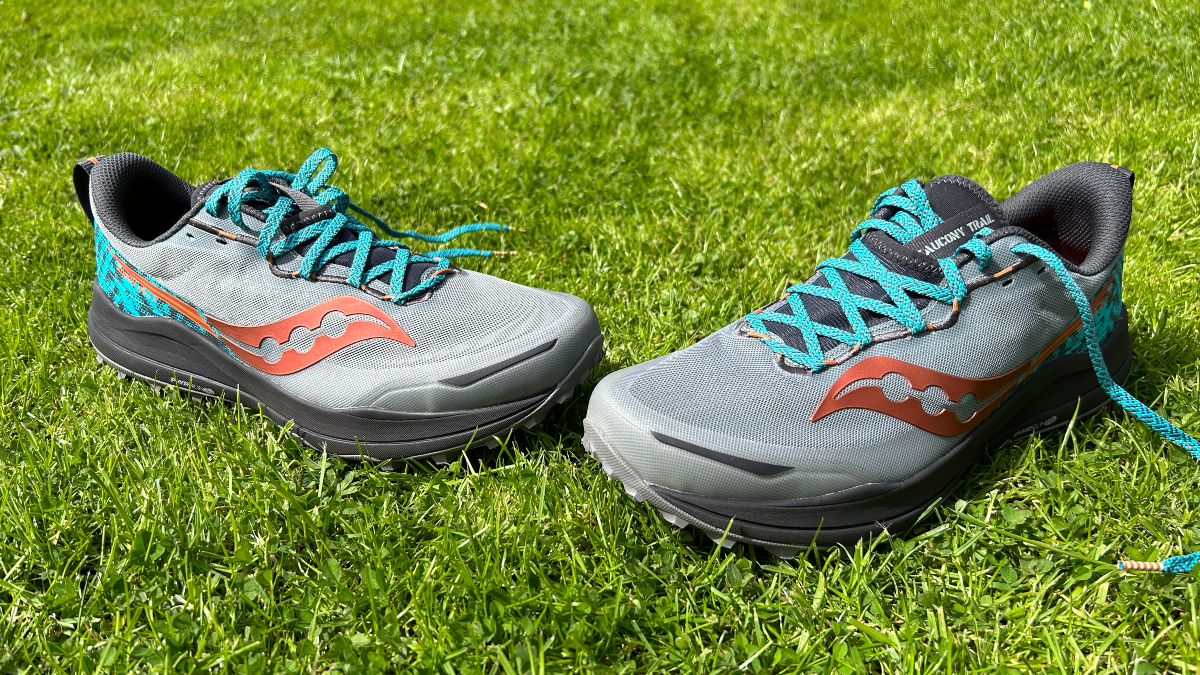Our Verdict
The Saucony Xodus Ultra 2’s comfortable ride and impressive outsole make it a great option for long trail runs on varied terrain, but the midsole also has enough spring for faster efforts too.
For
- Bouncy, comfortable midsole
- All-terrain grip
- Light for such a cushioned shoe
Against
- Lighter, speedier options available
- Not at best in thick mud
You can trust Coach
The Saucony Xodus Ultra 2 is my favorite new trail shoe of 2023 so far. I wasn’t expecting this when I started testing because I’m not an ultramarathon runner. The Ultra in the name almost does the shoe a disservice because it’s a shoe that will work perfectly for a variety of trail runners—not just those who hit massive distances—delivering a versatile ride and reliable grip on a range of surfaces.
It’s one of the best trail-running shoes of 2023 and unless you prefer exceptionally light and stripped-back trail shoes, or spend most of your time off-road in thick mud, it’s a strong candidate for your cash.
Saucony Xodus Ultra 2 Review: Price And Availability
The Saucony Xodus Ultra 2 launched in April 2023 and costs $150 in the US and £145 in the UK. It’s not a cheap shoe, though the price is about par when compared with rival options like the Hoka Speedgoat 5 or Nike Zegama.
Design And Fit
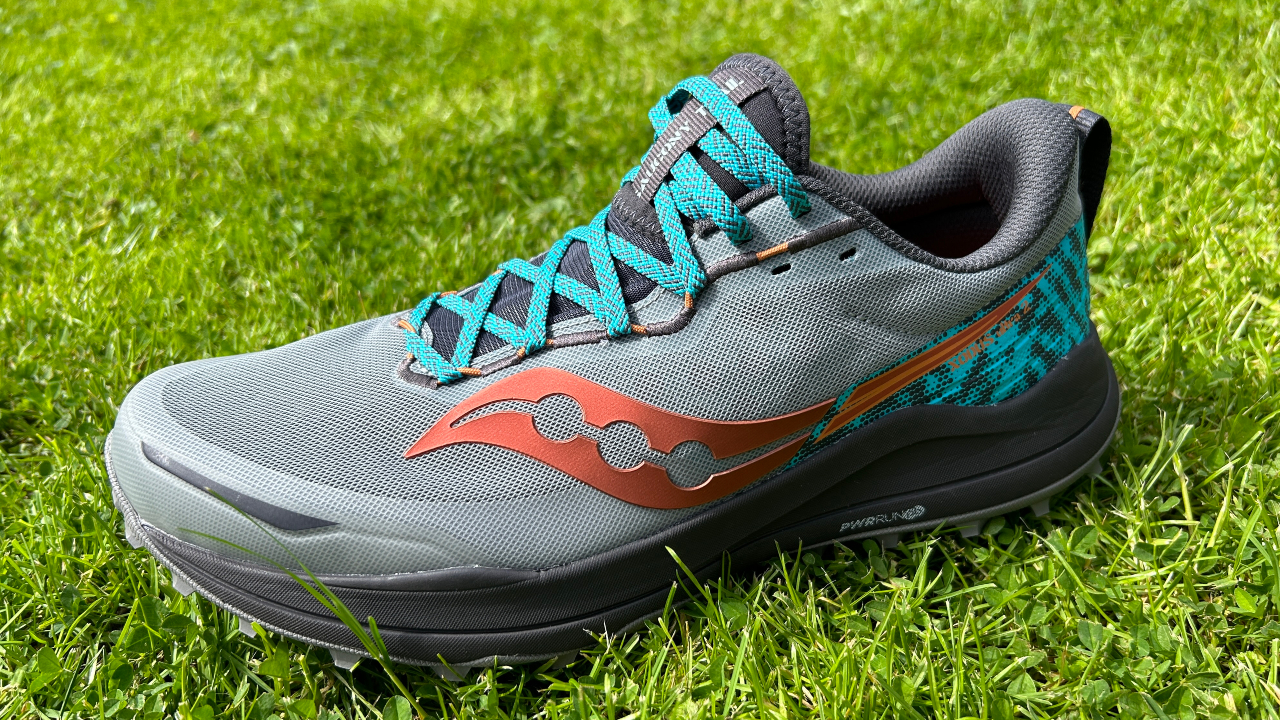
The most interesting feature of the Saucony Xodus Ultra 2 is the midsole, which uses a mix of foams to create a bouncy but stable ride. A frame of firmer PWRRUN foam surrounds a springy PWRRUN PB core, in similar fashion to the set-up on the Saucony Tempus road shoes.
Combined with the PWRRUN+ insole, which is softer than PWRRUN foam, the ride is reliably stable on uneven ground and has more pop than most trail shoes thanks to the PWRRUN PB. This is the same material used on Saucony’s road shoes, the Endorphin Pro 3 and Speed 3, as well as the Saucony Endorphin Edge trail-racing shoe.
The Edge’s midsole is all PWRRUN PB. It has Saucony’s Speedroll rocker geometry, as well as a Carbitex carbon plate, and it’s also lighter than the Xodus Ultra 2—which can almost be viewed as a more stable training partner to the Edge.
With a stack height of 32.5mm at the heel and 26.5mm at the forefoot, the Xodus Ultra 2 doesn’t stand as tall as many new road shoes, but it’s still well-cushioned and comfortable. The shoe has a rock guard underfoot to protect the feet, and the upper has a debris shield running around it to keep dust and small rocks out. The mesh material used for the upper has tight holes for breathability. An internal midfoot brace helps to create a secure fit on uneven ground.
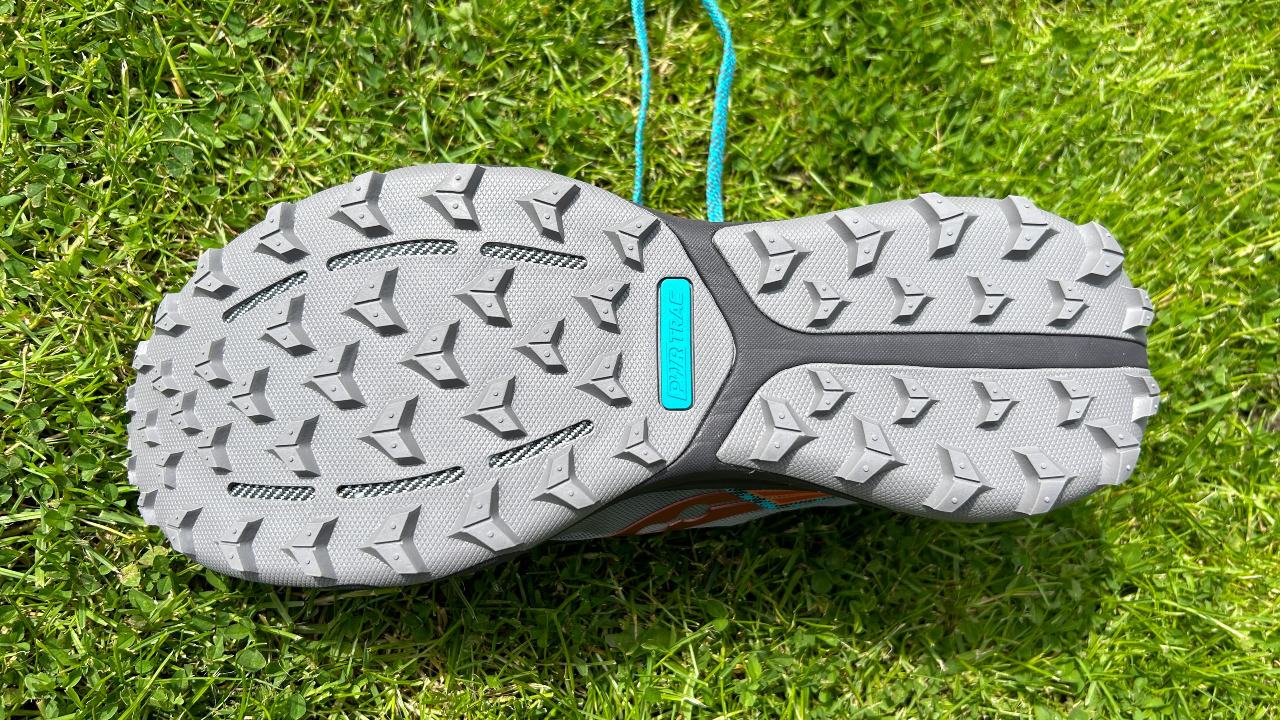
I found the shoe fitted well in my normal running shoe size, with enough room in the toe box that my toes didn’t hit the front of the shoe on downhills. Though those who like a roomy toe box for when their feet swell up, during ultramarathons in particular, might want to go half a size up.
The outsole of the shoe has three sections of Saucony’s PWRTRAC rubber, with 4.5mm chevron-shaped lugs. It’s a good all-terrain outsole that grips well on pretty much everything except deep mud in my experience, and it’s comfortable on the road to and from trails.
Given that the shoe has deep lugs and a relatively high midsole stack for a trail shoe, the Saucony Xodus Ultra 2 weighs less than I expected at 10.5oz/298g in my US size 10.
How I Tested This Shoe
I’ve run about 30 miles (50km) in the Saucony Xodus Ultra 2, my longest run being a half marathon. I’ve mostly run on well-kept forest trails, with muddy excursions, as well as grass sections. There were also the roads to and from my local forest. I’ve also tested the Saucony Endorphin Edge and a range of the best trail-running shoes from most brands.
Running Performance
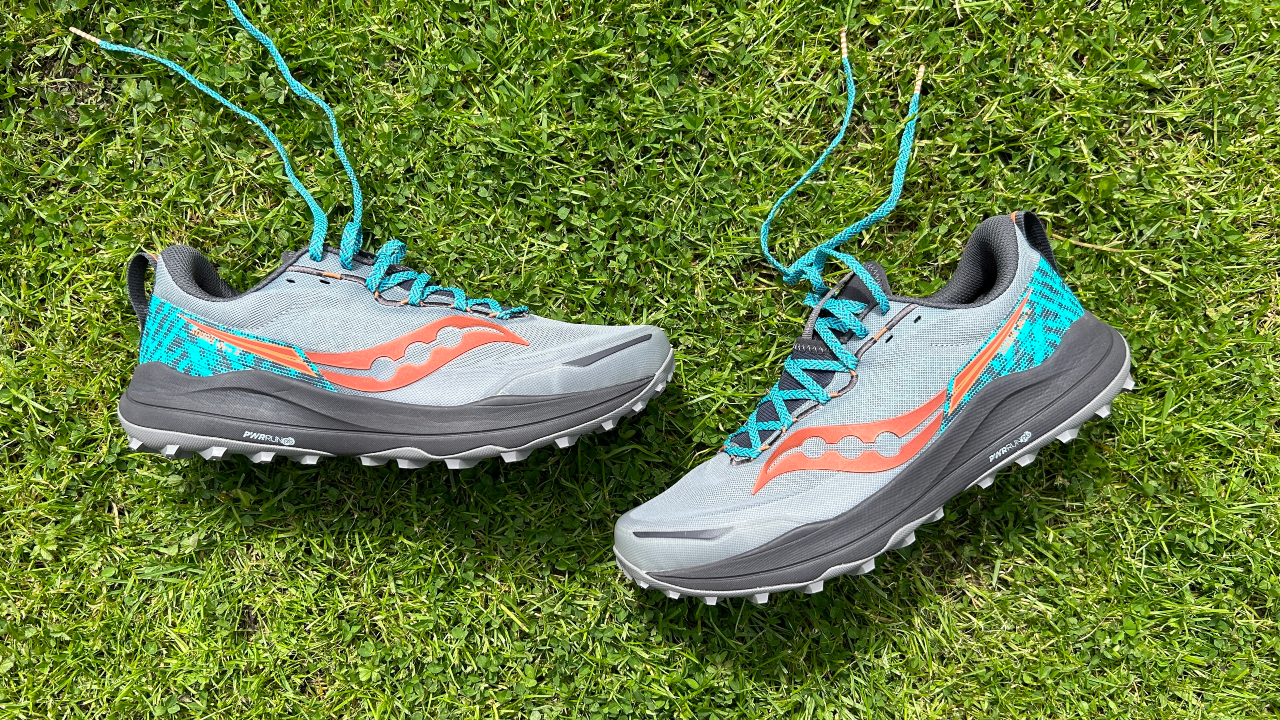
My first run in the Xodus Ultra 2 was a half marathon in my local forest, mostly at an easy pace but with a three-mile pick-up running at sub 6min/mile pace. I was hoping for a similar ride to the Saucony Tempus, a road shoe I love, and the Xodus Ultra 2 delivered.
The midsole is stable, even when on narrow single-track paths and speeding downhills, and when you hit flatter stretches on good terrain the bounce from the PWRRUN PB foam is evident.
It was comfortable over a 90-minute easy run, despite long sections done on the road. The foam protects the legs well when pounding down hills without feeling too built-up or heavy when going up them.
Aside from when I strayed into deep mud I had no concerns with the grip on the shoe either. Even with short stints in the mud it would grip fine. It was only if I was in mud for half a mile or so that the outsole would get clogged up and start to skid.
While it’s not as light and nippy as I’d like for short reps or races on the trails, the Xodus Ultra 2 is far from a slow shoe and works well as a trail all-rounder that can handle most paces and terrains.
Is The Saucony Xodus Ultra 2 Worth It?
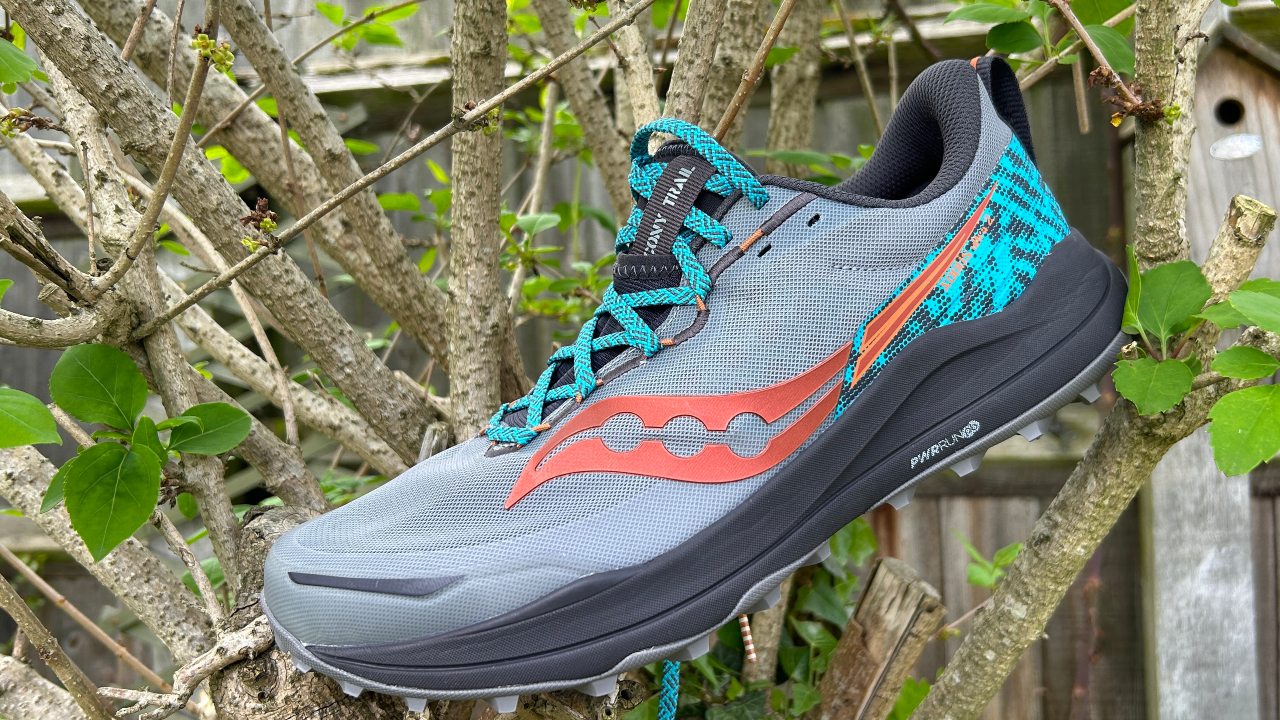
If you have ultramarathons in mind and don’t plan on splashing out on a carbon plate trail-running shoe then the Xodus Ultra 2 is a good option as a long-distance racing shoe. It’s more versatile than that, though, and is great for any kind of trail run as long as you’re not hitting deep mud or hoping to speed through a very short race. I’d have it at the top of my list if I were on the market for an all-rounder trail shoe.
It’s similar to the Hoka Speedgoat 5 in its versatility, though they have different ride feels, with the Speedgoat 5 being smoother and the Xodus Ultra 2 bouncier. The Inov-8 Trailfly G 270 V2 is another strong all-rounder option that’s not as cushioned as the Xodus Ultra 2 but grips better on soft ground and is a little nimbler on tricky trails, though the Inov-8’s zero-drop design won’t suit everyone.
The Saucony Peregrine 13 is another good option that is lighter than the Xodus Ultra 2 and has better grip on soft ground, but the Peregrine’s PWRRUN midsole is not as lively as the PWRRUN/PWRRUN PB mix on the Xodus Ultra 2. I find the latter more comfortable and quicker.
If you’re put off by the price then the Evadict MT Cushion 2 is a strong alternative from Decathlon. It grips well on the same kind of terrain as the Xodus Ultra 2 and is cheaper, though it’s not as comfortable for longer distances.

Nick Harris-Fry is a journalist who has been covering health and fitness since 2015. Nick is an avid runner, covering 70-110km a week, which gives him ample opportunity to test a wide range of running shoes and running gear. He is also the chief tester for fitness trackers and running watches, treadmills and exercise bikes, and workout headphones.
